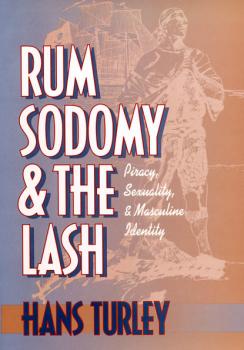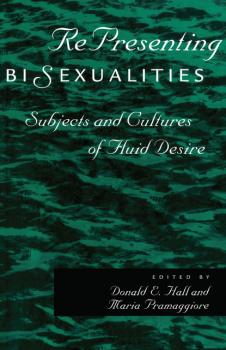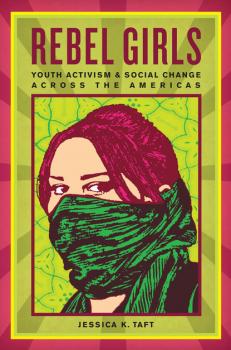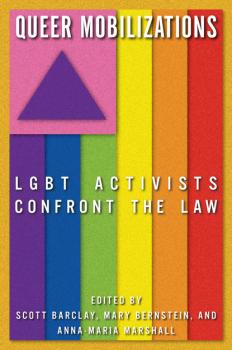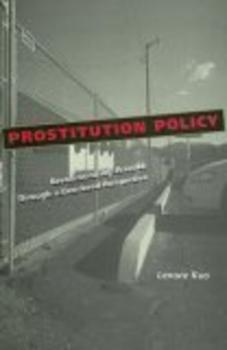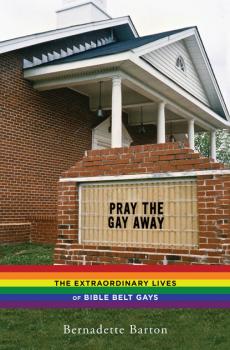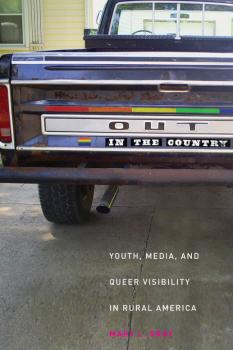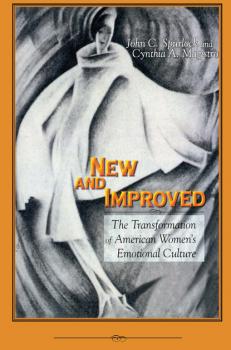ТОП просматриваемых книг сайта:
Управление, подбор персонала
Различные книги в жанре Управление, подбор персонала, доступные для чтения и скачиванияАннотация
Despite, or perhaps because of, our lack of actual knowledge about pirates, an immense architecture of cultural mythology has arisen around them. Three hundred years of novels, plays, painting, and movies have etched into the popular imagination contradictory images of the pirate as both arch-criminal and anti-hero par excellence. How did the pirate-a real threat to mercantilism and trade in early-modern Britain-become the hypermasculine anti-hero familiar to us through a variety of pop culture outlets? How did the pirate's world, marked as it was by sexual and economic transgression, come to capture our collective imagination? In Rum, Sodomy, and the Lash , Hans Turley delves deep into the archives to examine the homoerotic and other culturally transgressive aspects of the pirate's world and our prurient fascination with it. Turley fastens his eye on historical documents, trial records, and the confessions of pirates, as well as literary works such as Robinson Crusoe , to track the birth and development of the pirate image and to show its implications for changing notions of self, masculinity, and sexuality in the modern era. Turley's wide-ranging analysis provides a new kind of history of both piracy and desire, articulating the meaning of the pirate's contradictory image to literary, cultural, and historical studies.
Аннотация
Аннотация
From anti-war walkouts to anarchist youth newspapers, rallies against educational privatization, and workshops on fair trade, teenage girls are active participants and leaders in a variety of social movements. Rebel Girls: Youth Activism and Social Change Across the Americas illuminates the experiences and perspectives of these uniquely positioned agents of social change. Jessica K. Taft introduces readers to a diverse and vibrant transnational community of teenage girl activists in the San Francisco Bay Area, Mexico City, Caracas, Buenos Aires, and Vancouver. Expansive in scope and full of rich details, Taft brings to life the voices of these inspiring activists who are engaged in innovative and effective organizing for global and local social justice, highlighting their important contributions to contemporary social movements and social theory. Rebel Girls explores how teenage girls construct activist identities, rejecting and redefining girlhood and claiming political authority for youth in the process. Taft examines the girl activists’ social movement strategies and collective political practices, detailing their shared commitments to process-based political education, participatory democracy, and hopeful enthusiasm. Ultimately, Rebel Girls has substantial implications for social movements and youth organizations, arguing that adult social movements could learn a great deal from girl activists and making clear the importance of increased collaboration between young people and adults.
Аннотация
Аннотация
Globalization has a taste for queer cultures. Whether in advertising, film, performance art, the internet, or in the political discourses of human rights in emerging democracies, queerness sells and the transnational circulation of peoples, identities and social movements that we call «globalization» can be liberating to the extent that it incorporates queer lives and cultures. From this perspective, globalization is seen as allowing the emergence of queer identities and cultures on a global scale. The essays in Queer Globalizations bring together scholars of postcolonial and lesbian and gay studies in order to examine from multiple perspectives the narratives that have sought to define globalization. In examining the tales that have been spun about globalization, these scholars have tried not only to assess the validity of the claims made for globalization, they have also attempted to identify the tactics and rhetorical strategies through which these claims and through which global circulation are constructed and operate. Contributors include Joseba Gabilondo, Gayatri Gopinath, Janet Ann Jakobsen, Miranda Joseph, Katie King, William Leap, Lawrence LaFountain-Stokes, Bill Maurer, Cindy Patton, Chela Sandoval, Ann Pellegrini, Silviano Santiago, and Roberto Strongman.
Информация о книге
Автор произведения Группа авторов
Жанр Управление, подбор персонала
Серия Sexual Cultures
Аннотация
While widely acknowledged as the world's oldest profession, and often glamorized or demonized in the media, prostitution is a critical part of American culture and its economy, as well as a social problem in need of an updated public policy. In Prostitution Policy , Lenore Kuo combines feminist social research and legal studies to tackle issues raised by heterosexual prostitution in the U.S. Through the lens of feminist theory, Kuo examines the milieu of prostitutes and the role of prostitution in contemporary society, and how the interplay of those two works itself out in practice.Moving beyond theoretical analysis of prostitution, Prostitution Policy turns to the complicated problem of formulating a reasonable legal policy that minimizes harm. Kuo discusss criminalization, legalization, and decriminalization as possible approaches, ultimately arguing for a unique form of decriminalization including detailed legal oversight and mandatory social services.
Аннотация
In the Bible Belt, it’s common to see bumper stickers that claim One Man + One Woman = Marriage, church billboards that command one to “Get right with Jesus,” letters to the editor comparing gay marriage to marrying one’s dog, and nightly news about homophobic attacks from the Family Foundation. While some areas of the Unites States have made tremendous progress in securing rights for gay people, Bible Belt states lag behind. Not only do most Bible Belt gays lack domestic partner benefits, lesbians and gay men can still be fired from some places of employment in many regions of the Bible Belt for being a homosexual.In Pray the Gay Away, Bernadette Barton argues that conventions of small town life, rules which govern Southern manners, and the power wielded by Christian institutions serve as a foundation for both passive and active homophobia in the Bible Belt. She explores how conservative Christian ideology reproduces homophobic attitudes and shares how Bible Belt gays negotiate these attitudes in their daily lives. Drawing on the remarkable stories of Bible Belt gays, Barton brings to the fore their thoughts, experiences and hard-won insights to explore the front lines of our national culture war over marriage, family, hate crimes, and equal rights. Pray the Gay Away illuminates their lives as both foot soldiers and casualties in the battle for gay rights.
Аннотация
Winner of the 2009 Ruth Benedict Prize for Outstanding Monograph from the Society of Lesbian and Gay Anthropologists Winner of the 2010 Distinguished Book Award from the American Sociological Association, Sociology of Sexualities Section Winner of the 2010 Congress Inaugural Qualitative Inquiry Book Award Honorable Mention From Wal-Mart drag parties to renegade Homemaker’s Clubs, Out in the Country offers an unprecedented contemporary account of the lives of today’s rural queer youth. Mary L. Gray maps out the experiences of young people living in small towns across rural Kentucky and along its desolate Appalachian borders, providing a fascinating and often surprising look at the contours of gay life beyond the big city. Gray illustrates that, against a backdrop of an increasingly impoverished and privatized rural America, LGBT youth and their allies visibly—and often vibrantly—work the boundaries of the public spaces available to them, whether in their high schools, public libraries, town hall meetings, churches, or through websites. This important book shows that, in addition to the spaces of Main Street, rural LGBT youth explore and carve out online spaces to fashion their emerging queer identities. Their triumphs and travails defy clear distinctions often drawn between online and offline experiences of identity, fundamentally redefining our understanding of the term ‘queer visibility’ and its political stakes. Gray combines ethnographic insight with incisive cultural critique, engaging with some of the biggest issues facing both queer studies and media scholarship. Out in the Country is a timely and groundbreaking study of sexuality and gender, new media, youth culture, and the meaning of identity and social movements in a digital age.
Информация о книге
Автор произведения Mary L. Gray
Жанр Управление, подбор персонала
Серия Intersections
Аннотация
Not Working chronicles the devastating effects of the 1996 welfare reform legislation that ended welfare as we know it. For those who now receive public assistance, “work” means pleading with supervisors for full-time hours, juggling ever-changing work schedules, and shuffling between dead-end jobs that leave one physically and psychically exhausted.Through vivid story-telling and pointed analysis, Not Working profiles the day-to-day struggles of Mexican immigrant women in the Los Angeles area, showing the increased vulnerability they face in the welfare office and labor market. The new “work first” policies now enacted impose time limits and mandate work requirements for those receiving public assistance, yet fail to offer real job training or needed childcare options, ultimately causing many families to fall deeper below the poverty line. Not Working shows that the new “welfare-to-work” regime has produced tremendous instability and insecurity for these women and their children. Moreover, the authors argue that the new politics of welfare enable greater infringements of rights and liberty for many of America's most vulnerable and constitute a crucial component of the broader assault on American citizenship. In short, the new welfare is not working.
Аннотация
As the Victorian era drew to a close, American culture experienced a vast transformation. In many ways, the culture changed even more rapidly and profoundly for women. The «new woman,» the «new freedom,» and the «sexual revolution» all referred to women moving out of the Victorian home and into the public realm that men had long claimed as their own. Modern middle-class women made a distinction between emotional styles that they considered Victorian and those they considered modern. They expected fulfillment in marriage, companionship, and career, and actively sought up-to-date versions of love and happiness, relieved that they lived in an age free from taboo and prudery. Drawing on the diaries, letters, and memoirs of women from a wide range of backgrounds and geographic regions, this volume offers insights into middle-class women's experiences of American culture in this age of transition. It documents the ways in which that culture–including new technologies, advertising, and movies–shaped women's emotional lives and how these women appropriated the new messages and ideals. In addition, the authors describe the difficulties that women encountered when emotional experiences failed to match cultural expectations.
Информация о книге
Автор произведения John C. Spurlock
Жанр Управление, подбор персонала
Серия History of Emotions

